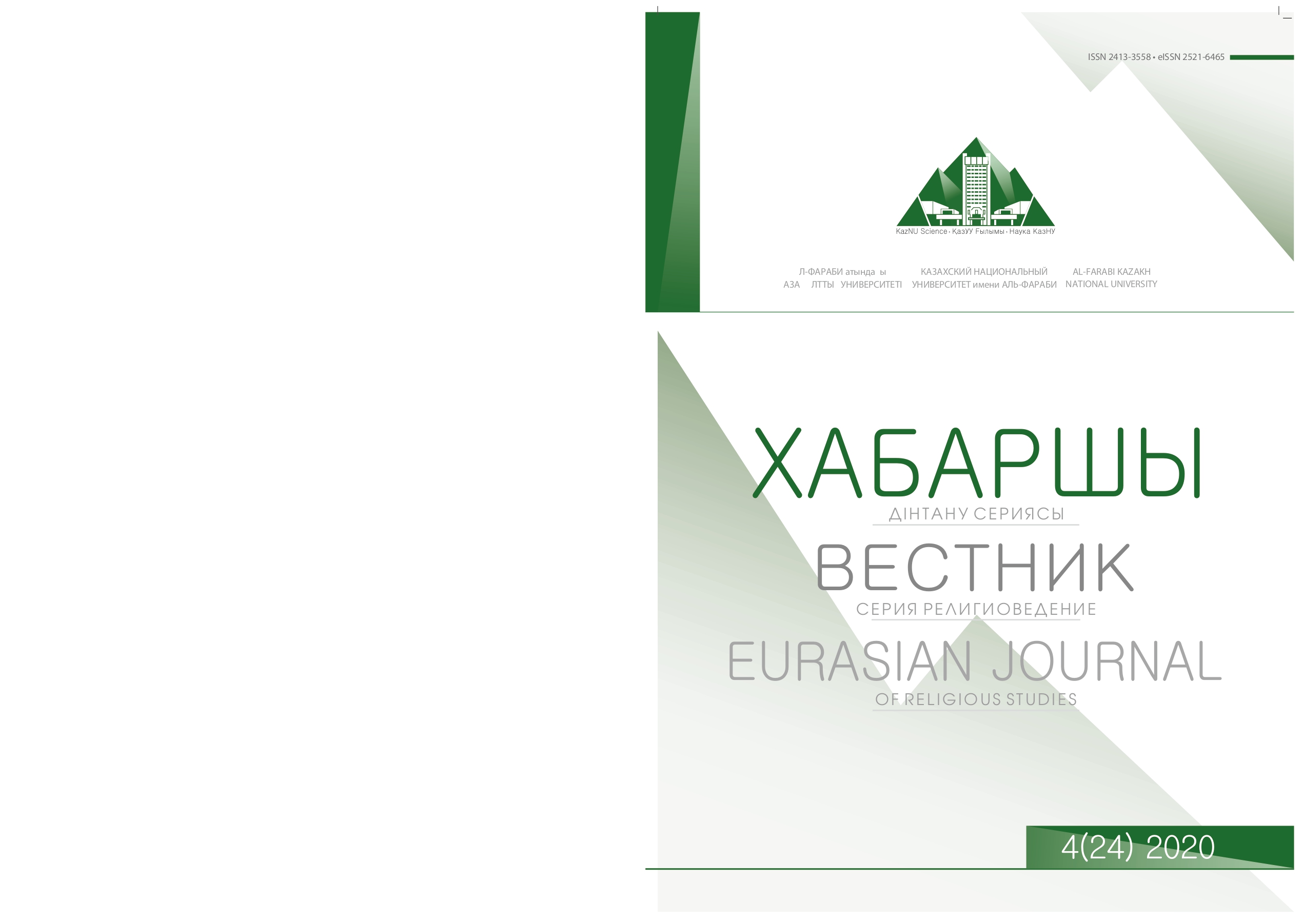The teaching of Кalam in the history of Islamic philosophy
DOI:
https://doi.org/10.26577/EJRS.2020.v24.i4.r2Keywords:
Arabic philosophy, Kalam, mutakkalim, al-Ashari, mutazilismAbstract
This article reveals the importance of Islam in the formation and development of the Arab Caliphate. The wars of conquest of the Arab state were fought under the banner of Islam. All those who converted to Islam began to be called Muslims (Muslim - devotee, obedient to God). Having emerged at the beginning of the seventh century, in Western Arabia, in Mecca, by the end of the noted century, Islam spread to the territory of Iran and Central Asia. At the initial stage of the existence of the new Muslim state, spread over such a vast territory, the primary task was to adapt the Quranic precepts to the new realities. The art of interpreting the Qur'an and collecting hadiths were cultivated. The political struggle in the Arab Caliphate was conducted in the form of philosophical and religious disputes. The debaters in discussions on theological and philosophical topics pursued completely earthly goals. Ethnic diversity and confessional pluralism that developed in the empire also did not help stabilize the situation. A characteristic feature of Islamic philosophy is its polemical orientation; this is the logic of its development. Dissatisfaction with the decisions of previous schools on fundamental philosophical issues gave rise to the need for the emergence of new schools and teachings. As a result of the ideological struggle, a line of speculative religious philosophy arose known as "kalam".
References
Grigoryan S. N. and Sagadeev A. V., Selected works of thinkers of the countries of the Near and Middle East in the 9th-14th centuries. - M: "Publishing house of socio-economic literature", 1961. – p. 632.
Grigoryan S. N., From the history of philosophy of Central Asia and Iran of the 7th-12th centuries. - M., 1960. – p. 332.
Jon McGinnis, David C. Reisman, Classical Arabic Philosophy (An Anthology of Sources). - Indianapolis: «Hackett Publishing», 2007. - 464.
Metz Adam Muslim Renaissance. Ed. 2nd. [Per. with it., foreword, bibliogr. and the index of DE Bertels. Resp. ed. V. I. Belyaev]. - M., Main edition of oriental literature ed. "Science", 1973.
Nasr Kh., Philosophers of Islam: Avicenna (Ibn Sina), al-Suhrawardi, Ibn Arabi. - M. 2014. - 152.
Sagadeev A. V., Eastern peripatetism. - M.: Publishing house «Mardzhani». 2009. - 274.
Smirnov A., Ed., History of Arab-Muslim philosophy: Textbook. - M., 2013. - 255.
Starr S.F., The Lost Enlightenment. The Golden Age of Central Asia from the Arab Conquest to the Time of Tamerlane. - M: «Alpina Publisher». 2017. - 561.













